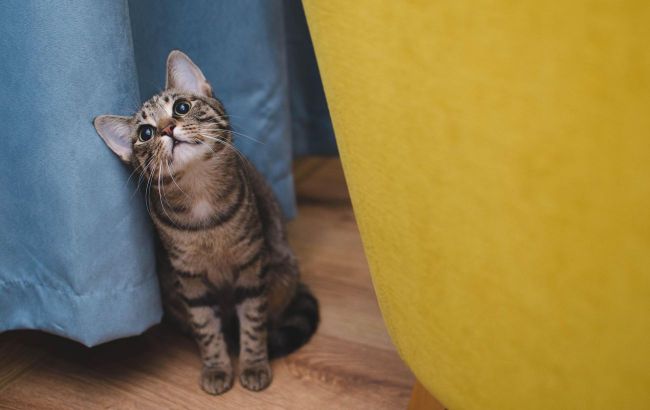5 signs your cat is sad even if they seem fine
 How to tell if your cat is feeling down (photo: freepik.com)
How to tell if your cat is feeling down (photo: freepik.com)
Cats don’t cry, complain, or call their friends. But that doesn’t mean they’re always happy. Often, even the calmest furry friend suffers in silence. If you don’t want to miss the signs that your pet is feeling sad, pay attention to these indicators.
They’ve stopped playing with their favorite toys
If a cat who used to chase a ball around the apartment now lies around all day without any activity, that’s a worrying sign. Loss of interest in play often indicates a depressive state or boredom, especially if it lasts more than a few days.
Changes in appetite
Cats react to stress with their eating habits just like people do. If your pet is ignoring food or, conversely, overeating, you should take notice. This could be a result of emotional burnout or a sign of physical illness.
Unusual toilet behavior
If your cat suddenly starts going outside the litter box, it’s not always about protest or illness. It could be an expression of emotional discomfort or a plea for attention. Sadness or anxiety often disrupts habits that have been consistent for years.
Avoiding contact or, on the contrary, being overly clingy
Some cats become loners under stress, while others turn into “velcro” pets. Either way, it’s a behavior change. If your cat hides, doesn’t respond to your voice, or constantly demands attention, it could be a sign of sadness.
Silent withdrawal or excessive meowing
If a previously talkative cat becomes quiet, or a quiet one starts meowing without reason, it reflects their emotional state. Changes in vocal behavior are your cat’s way of speaking—ones you need to hear in time.
Many cat owners think a meowing cat is looking to mate. But more often, this is how the animal expresses sadness, a need for attention, or a request (to be picked up, fed, have the litter box cleaned, or to play). Sometimes, excessive vocalization also signals pain.
Excessive grooming
If a cat constantly grooms itself for no reason, it’s not just being tidy. This behavior often helps the animal cope with anxiety and boredom. In severe cases, the cat may tear out patches of fur, swallow it, or obsessively search for nonexistent fleas.
Changes in sleeping spots
If your cat suddenly starts sleeping among your clothes, in your bed, or in the closet, pay attention. If this is not normal behavior, it might indicate anxiety. Cats often hide in places that smell like their owner to calm down.
Destructive behavior
Has your well-behaved cat started knocking over flower pots, scratching furniture, or climbing on cabinets? If this behavior is unusual for them, it could be a sign of stress. This might be their way of both coping and trying to get your attention.
What to do if you suspect your cat is sad
First of all, don’t punish your cat for their behavior. That could make things worse.
Secondly, consult a veterinarian—not only about physical health. Think about any recent changes at home: moving, a new family member, the owner’s absence, renovations. All of these can stress a cat out.
Add more interaction: new shelves, games, affection, frequent communication, and holding them. Watch their reactions.
Stick to a stable routine. Feed them at roughly the same time each day and give them attention consistently.
You may be interested in:
- How many times a day should you walk a dog – a guide by age and breed
- What temperature in spring and summer becomes dangerous for dogs, while you’re still wearing jackets
Sources: American Veterinary Medical Association, PetMD, Cornell University College of Veterinary Medicine, International Cat Care, ASPCA

